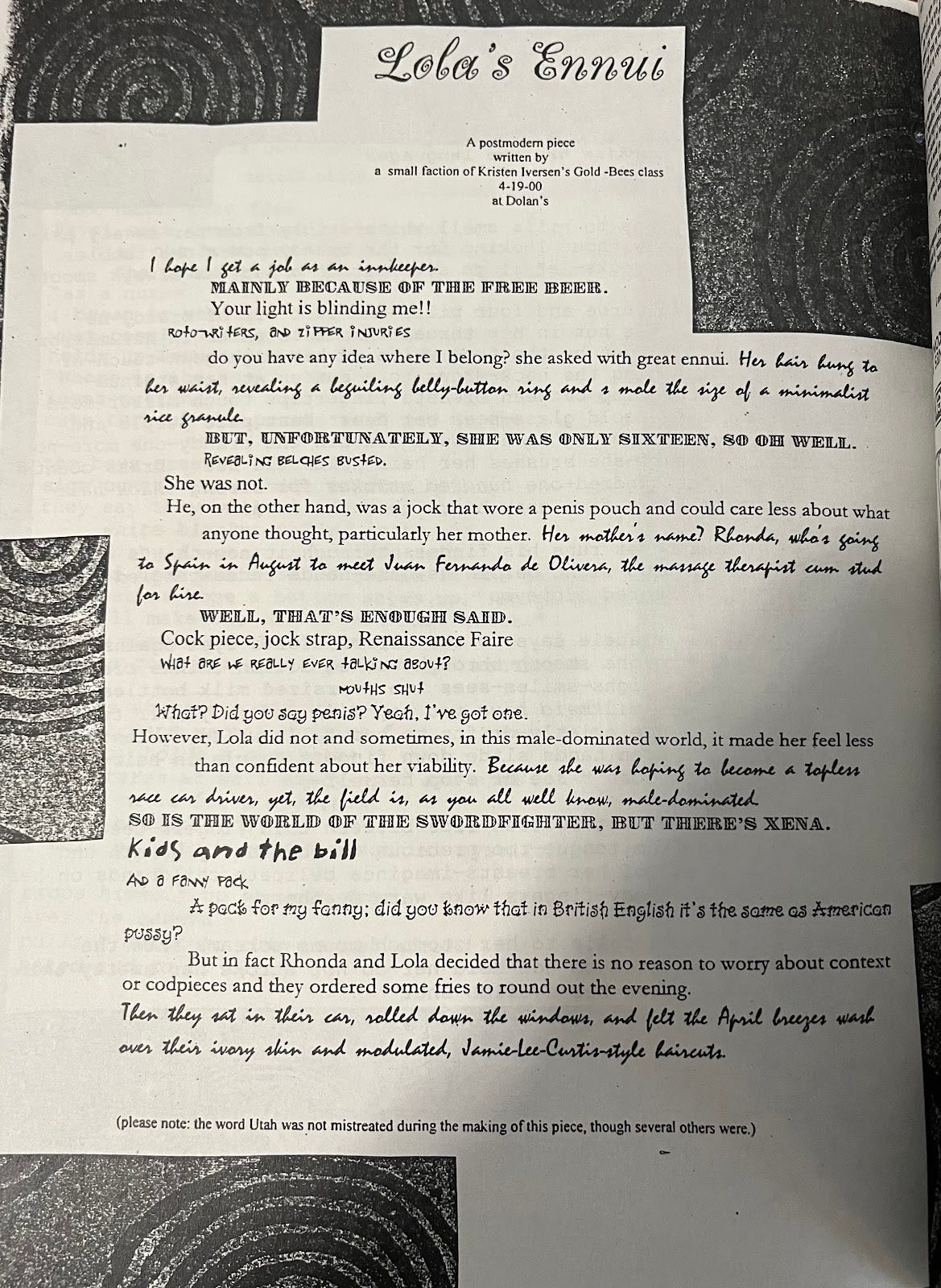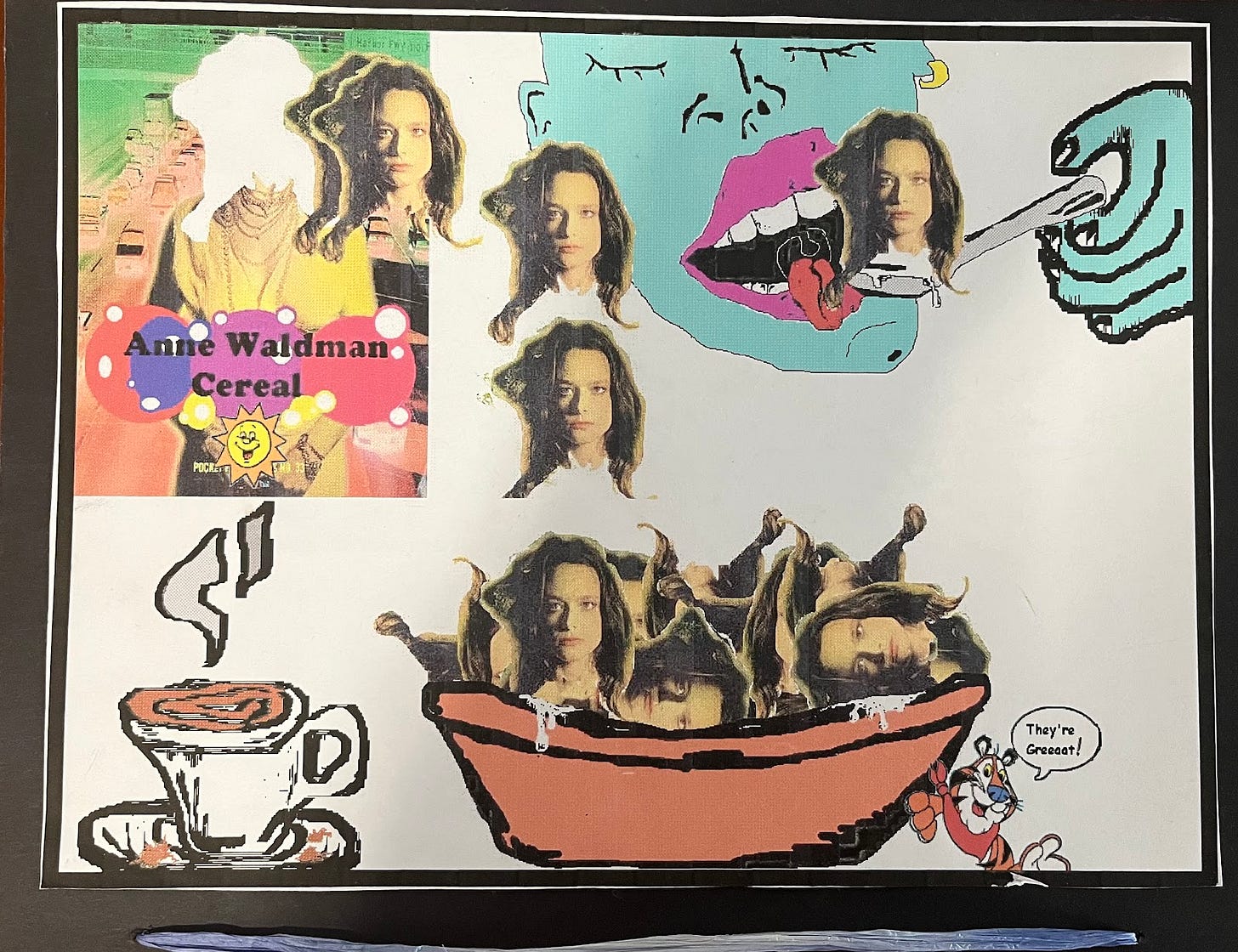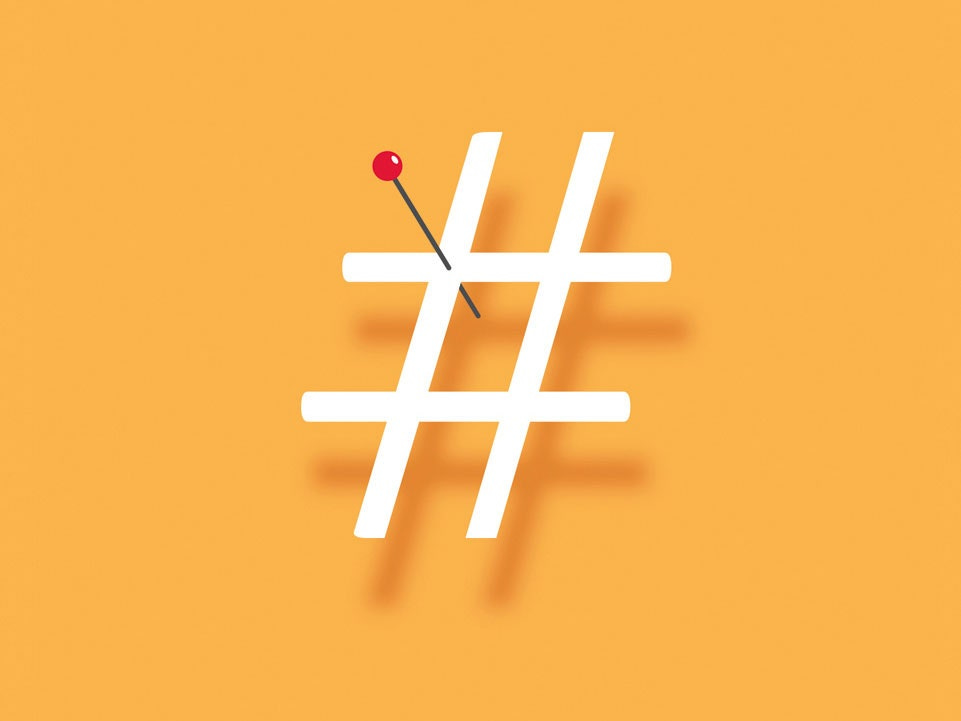Your choice is in! Well, choiceS, plural.
In my poll a couple weeks ago, you actually picked 2 excellent words for me off my list, so I’ll be doing the other word that this one was tied with next week. I was a bit surprised, honestly, but hey. The more I looked into this week’s word, or at least, the symbol this word names, the more cool stuff I found out. Here’s a smattering of Musings about all the meanings that this long word for a tiny symbol has, that I can find and/or think of. And thanks for your votes!
OCTOTHORPE
Now this is the word for a symbol that has many different meanings, as I’ve mentioned, depending on the context you see it in. The most plausible definition I’ve seen for why it’s called this is that the word ‘thorpe’ is an old term for a farmstead or habitation, surrounded by protection or bordered fields. So you can see how the symbol (#) looks like a little square plot of land surrounded by 8 sectioned-off fields. If you don’t count the middle as a square, it makes sense. Otherwise, it’d be nonothorpe. I dunno. I buy it.
#
Number the Pounds
Octothorpe as Number Symbol: Ever try to type the phrase ‘number one’ as #1 and your computer tries to make it into a hashtag? It depends on what app or program you’re using, but. This derails me often in my writing, especially when I’m in outlining mode. I wonder if this is why my beloved old Boulder speakeasy, License No. 1, spells their name like that? Also, I wonder when I’ll Popinate about that place, as well as the Catacombs smoker’s dive it used to be? There’s a delightful story about my extremely tipsy mother, after my first wedding reception, farewelling all the drunks at that bar after we’d partied there for a while after having partied to the extent of our time limit upstairs at the posh hotel’s mezzanine. She was treating all the college drunks and old smokers like they were all wedding guests. Which, hey, there I was in my handmade dress, drinking 90 Schilling without spilling a drop, so. I guess they were, in a way. Good times. (The marriage ended up not such a good time but ehhh we didn’t know that then.)
Octothorpe as Pound Sign: You still hear this when you’re trapped in an automated phone system. ‘Press the pound key’ is like, the period to a sentence when navigating one of those, or like hitting ‘enter’ and sending your message into the AI comprehension bank.
Space Ghost
It’s been a thousand years since I stubbornly forced my students to print out and hand in their papers on paper, because I could not, *could* not look at another screen for another moment, let alone for the hours required to grade them all. Even when going through stacks of paper papers, though, I never used the traditional proofreader marks, like from the old school professional editing circuit. Why? Mainly because it was hard enough for my students to get the basics of essay writing alone, including all those nitpicky rules about citation, without having to teach them another entirely new language of symbols to make corrections from. Though most of them didn’t make the corrections I suggested anyway, even on their rough drafts. Sigh. But this little hash # in proofreader code means: add more space.
‘At’ signs are also tags now, and those also used to be used by proofreaders. Nowadays you can’t make anything ‘@’ anything anywhere without your program or app (especially app) trying to find a person or user to tag. What’s the term for the ‘at’ symbol again? Don’t ‘at’ me. Actually, do—I want to know but I don’t feel like stopping to look it up.
Not sure how that technology magic works, myself. What makes an innocent octothorpe or ‘at’ do the whole linky magic taggy thing? What happens there? Any computer boffins want to weigh in? (I love the Brit term ‘boffin’ for ‘nerd’ and I’ve decided I’m going to adopt it in my own lexicon. Another vocab word for the day. Thank me later.)
Don’t Take That Sharp Tone With Me
Now this meaning for ‘#’ is for those of you who know how to read music. I’m not amazing at doing so anymore (one of those skills I had as a youth I no longer have at such a high level), but I do know that it’s a ‘sharp’ symbol. I also know that when I hit a note and it’s too sharp, that means it’s an error on the high side. Flat is an error on the low side. I know you can look at a music staff and see what key you’re in by how many sharps are placed where on the staff. But it’s been a while since I’ve had to execute such a high level skill, and, as with any language, if you don’t use it, you lose it. I’ve written about that before, when I Mused about bilingualism.
Tic Tac Toe
Anyone still play this rudimentary game anymore? Besides this raven?:
I can’t remember the last time I played this game, myself, nor the more sophisticated version of it, Go, which I used to play with my Dad a lot when I was a kid. As smart as I am, and as into intellectual pursuits as I was, I never managed to learn chess very well. But I did come to know Go really well. Come to think of it, how come nearly all the different meanings for the octothorpe # are all either very old or obsolete? Or both? All, that is, except one:
Hashtag sorrynotsorry
Hashtags are ubiquitous these days—even if you don’t know how to use them or what they’re good for (jeez, Boomers), chances are if you’re on social media at all you’ve used them or at least have seen them. I find them to be an interesting way to get a hold of the algorithm when it comes to things like getting my writing seen (on platforms besides Substack), and especially when I’m promoting any of my theatre stuff.
Wired of course published a fascinating oral history of the hashtag wherein some of the very early adopters, if not inventors, of the phenomenon chime in. The article came out in 2017 and I wonder how the hashtag has evolved in its use since then, if it has at all. Again, boffins? What’s your view? Is it working differently now, with all this AI? Or has it always been used to hash and hack its way into those crevices?
Personally? I love the use of hashtags as an ironic continuation of the narrative of a written piece, as seen on Tumblr in particular. I started to do hashtags like that on Facebook when I first got on there (since I never used Tumblr very much, at least not to write on), and it just didn’t have the same effect. But I love the sort of snarky hashtag commentary (or continuation in earnest) that would happen there in the hashtags. It worked almost as a sort of exquisite corpse* with the original narration being continued by the hashtags below it.
Sara Schmieder talks about this Tumblr hashtag phenomenon in depth on her blog, in a post from 2022, and I feel like she’s on to something linguistically interesting when she distinguishes the difference between hashtag use for promotion and categorization, and the Tumblr-specific practice of ‘talking in the tags’:
Tagging practices on Tumblr disrupt the search system on the platform and change the understanding of the purpose of tagging. Rather than being a form of organization and promotion, there is an intimacy created by “talking in the tags.”
Read the rest of her blog post there at the link. It’s interesting and fun stuff to learn about. It’s one of those linguistic things I love to notice and ponder. And Muse about.
Lola’s Ennui

#postmodern #octothorpe
I’ve been learning how hashtags in particular guide the online (especially social) algorithm, as I use Instagram more and more for theatrical promo purposes: noticing which ones are highly used and such has been an interesting marketing lesson. And it’s easier to use those (for me) than the SEO of keywords ever were. Though I’m a clever enough wordsmith that including keywords in natural-sounding sentences is a task I can take on. I treat it kind of like a word puzzle, like limericks or Boggle. But. Hashtags are still easier. And they’ve got a history, now, in our written language.
In for a hashtag, in for a pound, I guess…







I like the word “boffin,” too, and the idea of subverting the algorithm by “talking with the tags” (I’ll be looking into that more). And did anyone else note that when the Raven won tic-tac-toe, his handler stroked his feathered head and crooned, “Mishka, Mishka” - ?
So wait, so no Fred Molina then?